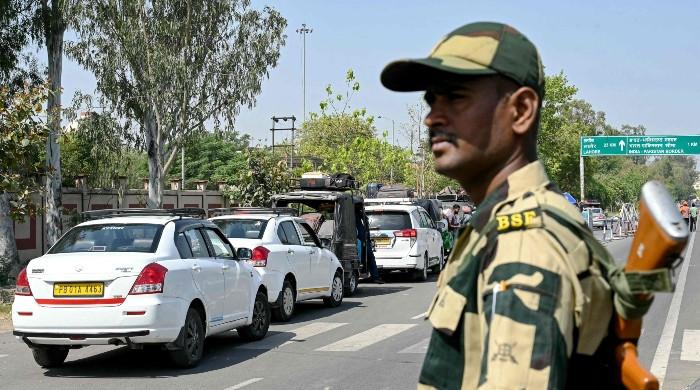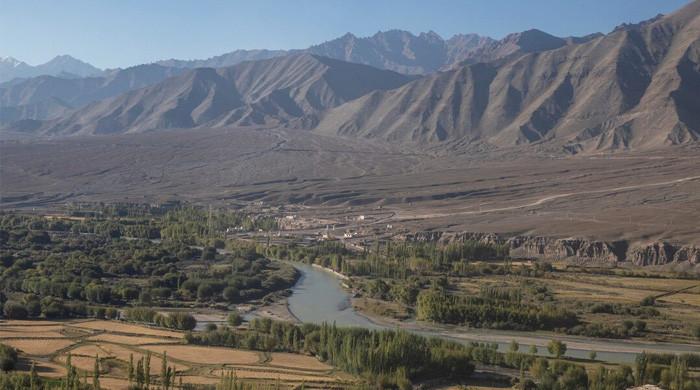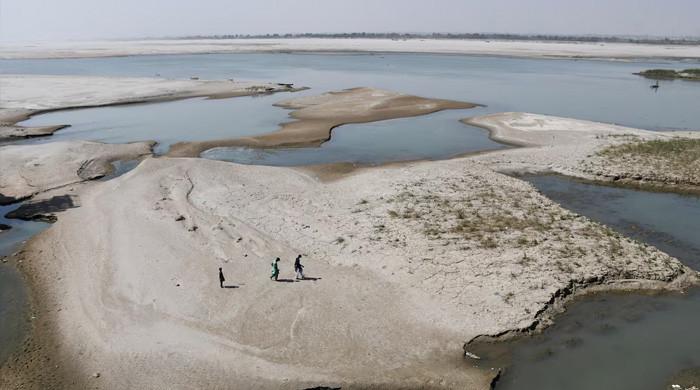Judge made law
Increasing use of public interest litigation (PIL), in the recent past, has been extremely productive and has been instrumental in many issues
December 13, 2022

Four years ago, I was struck by an article titled ”The Right to food” by Eamaan Noor Bandial, which described the alarming hunger levels, food wastage and the violation of the right to food as a violation of the right to life.
After several unsuccessful attempts to directly work with various government departments, I initiated public interest litigation on hunger and food wastage in Pakistan.
The petition titled “Muhammad Ahmad Pansota v. Federation of Pakistan & others”, was filed by me as petitioner-in-person with Advocate Eamaan Noor Bandial as my co-counsel with Lahore High Court.
The Petition along with a clubbed petition on a connected matter filed by Barrister Haroon Mumtaz, Hafsa S. Ahmad and Mehak Adil was fixed for hearing before the honourable Justice Jawad Hassan – a learned and enlightened judge, dedicated to creating a safer environment and brighter future for the generations to come.
The idea behind filing the petition was two-fold: i) developing the solution to high hunger levels given by Bandial in her article; alleviating hunger by redirecting surplus food to those in need; ii) to get an overarching law on the subject which could comprehensively deal with preservation, conservation, and management of excess of food/wastage of food in Punjab. We sought direction from the court to the Punjab Food Authority (PFA) to exercise its powers to legislate on this matter of public importance.
Secretary Food Department, Government of Punjab and Director General, Punjab Food Authority were directed to constitute a committee to prepare draft regulations on the matter under Section 57 of the Punjab Food Authority Act, 2011 after consultation with experts and social workers, the legal fraternity, academics and other stakeholders including owners of food businesses.
After several discussions, the final draft of Punjab Food Authority (Disposal of Excess Food), Regulation, 2019 (the “Regulations”) was prepared and submitted in court.
Through the judgment (PLD 2020 Lahore 229) on the matter, the Honorable Judge issued directions to Provincial Government & Punjab Food Authority as regards preserving, conserving and managing excess food and minimising wastage of food by redirecting surplus food that is fit for human consumption (including foods close to expiry date but not yet expired) to donor organisations that would donate it to those in need.
Concerned departments were also directed to ensure the establishment of a management system whereby food can be channelised to persons in need through strict compliance with the relevant provisions of the Punjab Bait-ul-Maal Act, 1991 and the Punjab Charities Act, 2018.
Punjab Government shall also revise and amend the existing laws if so required i.e. Punjab Pure Food Ordinance 1960, Punjab Pure Food Rules 2011 and Punjab Food Authority Act, 2011 to ensure wastage of food by food businesses i.e. the producers, storage facilitators or distributors (restaurants, distributors etc.) is kept in check.
They were further directed to implement all the applicable laws, directions and judgments of the Supreme Court and High Court in letter and spirit in order to ensure the fulfilment of the obligation under Articles 189 and 201 of the Constitution.
The Punjab Food Department and Punjab Food Authority were ordered to take steps to inform and apprise the public and all the stakeholders (i.e. NGOs, charities and hotel associations etc.) on food preservation, conservation, and management methods to reduce wastage through awareness campaigns via the media and other platforms.
As a result of the judgment, the PFA finally notified Regulations, this week, finally regulating the disposal of excess food to maximise human consumption of it rather than wasting it. High economic and environmental costs are borne to produce food, hence a zero-waste principle in food businesses should be introduced and encouraged through schemes that establish incentives to implement the discardable food reduction hierarchy: saving excess food for its safe disposal rather than it being wasted.
The Regulations have imposed a duty on food operators including supermarkets to enter into agreements with food donor organisations to donate excess food and set further goals to reduce food wastage drastically in the next few years. It also sets out a protection mechanism for donor organisations, freeing them of any liability arising as a result of an in/action in good faith. Finally, the Regulations empower the PFA to penalise anyone in violation of the Regulations by imposing penalties as provided under chapter 4 of the Punjab Food Authority Act, 2011.
The increasing use of public interest litigation (PIL), in the recent past, has been extremely productive and has been instrumental in issues ranging from enforcement of the rights of domestic workers, protection from child labour, and saving the environment to many more.
Barrister Muhammad Ahmad Pansota is an Advocate Supreme Court and tweets @pansota1











